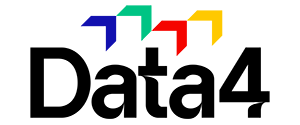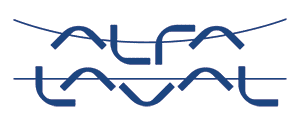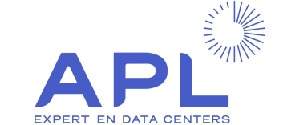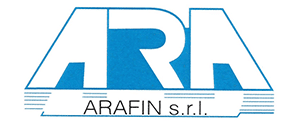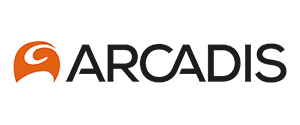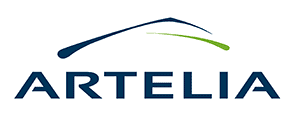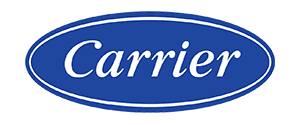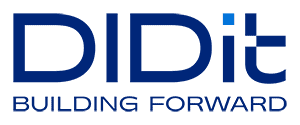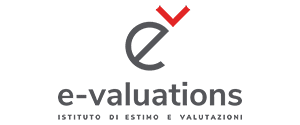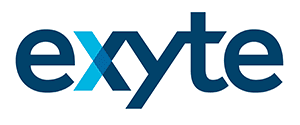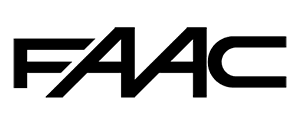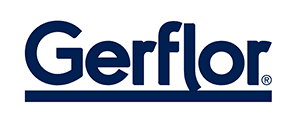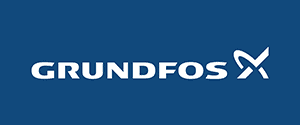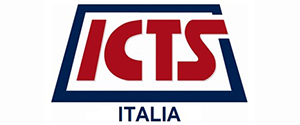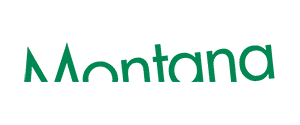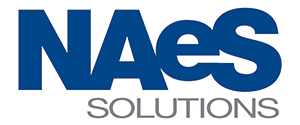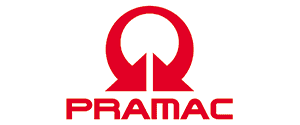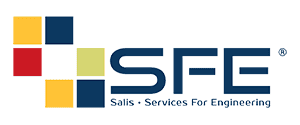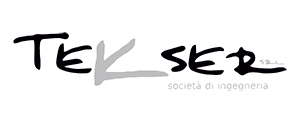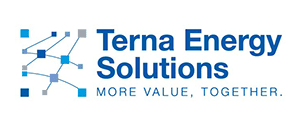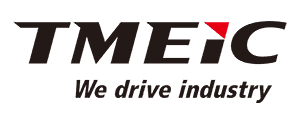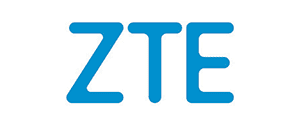
Statute
Art. 1
Constitution and seat
The non-profit association named “IDA – ASSOCIAZIONE ITALIANA COSTRUTTORI & OPERATORI DI DATA CENTERS”, hereinafter referred to as the Association, is hereby established with its registered office in Milan (MI) 20121, via Turati 29.
The Association is governed by these Articles of Association and by the relevant laws in force.
The transfer of the seat within the same municipality does not entail a change in the articles of association.
Art. 2
Duration of the Association
The duration of the Association is unlimited.
Art. 3
Aims and activities of the Association
The Association represents the common economic, legal, commercial and technical interests of the operators, builders and owners of Data Centers (‘Sector’) with the public, businesses, and institution at Italian and international level.
The Association is apolitical and non-denominational and is neither directly nor indirectly profit-making.
The Association pursues the following general purposes:
- Recognition and development of a strong and efficient data center industry in Italy;
- Strengthening Italy as a location for the development and presence of Data Centers;
- Facilitating leaner processes for the construction and operation of new data centers;
- Promoting energy efficiency, sustainability and occupational safety in data centers;
- Development of professionalism and skills in the sector;
- Development of Standards, Regulations and Norms in the Sector;
- Initiation and implementation of research projects;
- Cooperation with all associations and organisations in the sector;
- Cooperation with educational/academic institutions for the training of specialised personnel in the sector;
- Promote gender inclusion and diversity in the sector at every organisational level;
The Association pursues the following activities to realise the above-mentioned objectives:
- Representation of the sector’s interests at national and international level;
- Promotion of initiatives to make the Data Center Sector known to the public;
- Representation of the sector at fair/exhibition organisers, associations and social actors;
- Organisation and creation of an information exchange;
- Continuous updating of members on all developments in the sector, in particular on technology and market trends;
- Development and promotion of the sector and its supply chain;
- Raising awareness of the Sector’s stakeholders, such as institutions, the media and society at large to express the Sector’s views on regulatory and policy issues;
- Promotion of the image and economic importance of the data center sector, both in the short and long term;
- Monitoring market dynamics and the added value that the Data Center industry generates for the country system;
- Representing the interests of all members on their own behalf and issuing public statements for members;
- And any other activity aimed at fostering the development of the Sector.
For the achievement of its purpose, the Association may collect donations, also through crowdfunding platforms, bequests or other donations both in cash and in kind, may purchase, lease sell both movable and immovable property, register and use trademarks and patents, hire staff, enter into agreements with individuals, associations, foundations, public and private entities.
The Association may carry out its activities throughout Italy.
In order to achieve its statutory purposes, the Association may collaborate, join, affiliate or form consortia with any public or private, local, national or international body, as well as collaborate with bodies, movements or associations with which it deems it useful to have connections; it may also foster the birth and development of bodies and groups, including foreign ones, that, even for individual sectors, have purposes similar to its own, encouraging their activity, collaborating with them through appropriate connections and also favouring their affiliation with the Association.
In carrying out its activities, the Association imprints its conduct on respect for the rules of competition, as an indispensable element for the proper development and functioning of the Sector. To this end, the Association adopts the necessary tools and measures to prevent the emergence of competition problems, including specific rules of conduct formalising and recalling the Association’s commitment to operate in compliance with such rules.
Art. 4
Member Requirements and Member Categories
The Association consists of the following categories of Members:
- Ordinary;
- Honoraria;
- Partners.
Legal entities who manage and/or operate and/or own Data Centers in the person of their legal representative or a specially appointed delegate of the latter may become Ordinary Members of the Association.
Ordinary Members are required to pay the admission fee and the annual fee in accordance with the terms and conditions set by the Executive Board.
Honorary Members are natural persons of full age who have special merits and/or have contributed significantly to the development of the Association. Honorary Members are appointed by the Executive Board and are exempt from paying admission and annual fees.
Associate Partners are companies, entities and organisations that do not meet the requirements defined in the Articles of Association for Ordinary and Honorary Members, but which are nevertheless directly or indirectly connected to the Data Centers’ activities and which promote and support the Association’s aims and objectives.
Associate Partners are obliged to pay the admission fee and the annual fee in the terms and manner set by the Executive Board.
Partner members may not hold management positions.
These Articles of Association are inspired by the broadest principles of internal democracy and therefore, all Ordinary, Honorary and Partner Members have the right to participate in the life of the Association and to determine its structure and guidelines through their vote at the Assembly in accordance with the Civil Code and these Articles of Association.
The membership book is constantly updated, also in the form of an electronic archive, by the Secretary.
Art. 5
Admission and Rights of Members
All Members must have, head office, residence and/or domicile in Italy. In the case of a foreign entity, it must have at least one branch or sub-branch in Italy.
The application for admission must be submitted in writing to the Executive Board and must contain an undertaking to comply with these Articles of Association, the Code of Conduct, any internal regulation and any other provisions brought to the applicant’s attention.
Acceptance of applications for the admission of new Members is decided by the Executive Board within one month of their application.
Reasons must be given for any refusal of admission of a new Associate by the Executive Board.
The decision is final and unappealable.
The status of Associate and its registration in the Register of Associates shall take effect on the date on which the application is accepted and approved by the Executive Board and upon payment of the admission fee.
Membership of the Association is for an indefinite period of time and cannot be arranged for a period of time, without prejudice to the right of withdrawal. The withdrawing Member has no right to reimbursement of dues paid and/or compensation of a financial nature.
Members have active and passive electorates according to the Statute.
Members who have paid their annual dues have the right to participate in the Association’s activities and to use the Association’s facilities and services, including through its delegates.
Every Associate has the right to inspect the book of the General Assembly and the Associate list book, upon written and motivated request to be sent to the Secretary, who shall reply within 30 days of the request.
In the event that the Board of Auditors has not been appointed, Members with at least 20% of the shares may request the President to inspect the Association’s accounting documents and records of the previous three years.
The President or his delegate must make the documents available within 45 days of receipt of the request, which must be in writing and sent to the e-mail address of the Association.
Art. 6
Dues and contributions
The Associate requesting admission to the Association shall pay the admission fee. Once admitted and for each financial year thereafter, the Associate shall pay the annual fee.
The Executive Board defines the quantum of the admission fee and the annual fee. The quantum of the admission fee and the annual fee may not coincide.
By 31 December of each year, the Executive Board decides on the amount of the admission and annual fee. In the absence of a resolution, the existing admission and annual fee shall remain in force.
Annual dues must be paid by the Member by 31 March each year.
The admission fee is due for the whole of the current social year, irrespective of when the new Member joins.
Admission and annual dues are collected by the President and/or Treasurer.
A Member who resigns or otherwise ceases to be a member of the Association for any reason whatsoever shall be required to pay the annual fee valid for the calendar year in progress at the time of resignation.
Art. 7
Duties of Associates
Membership of the Association binds the Members to comply with the rules of these Articles of Association, the Civil Code and all internal codes and regulations applicable to Members.
The Member shall behave correctly both in his relations with other Members and with third parties and refrain from any act that may harm the Association.
Members must not pass on the confidential information of the Association to third parties.
Art. 8
Loss of Associate status
Associate status may be terminated for the following reasons:
- by cancellation to be given at least three months’ notice in writing;
- by resolution of disbarment by the Executive Board;
- for being more than 90 days late in paying the annual fee;
- in the case of a legal entity, when the change of corporate purpose is no longer consistent with the institutional activities of the Association;
- judicial liquidation or other insolvency proceedings;
- on the death of the Associate;
- for violation of the statutory rules, the Code of Conduct and any other internal regulations pertaining to Members.
Withdrawal by the Member must be communicated in writing to the Executive Board. Delinquency automatically entails the loss of Associate status after ninety days from the due date for payment of the annual fee, i.e. 31 March of each year; the delinquent party may be readmitted to the Association by the Executive Board with its own unquestionable and unappealable resolution.
The expulsion of an Associate is effected by resolution of the Executive Board in cases where the Associate has not complied with the Articles of Association, the civil code and other internal codes and regulations, and has committed actions deemed dishonourable inside and outside the Association or has constituted an obstacle to the smooth running of the Association by his conduct.
Against the decision of the Executive Board, the expelled Member may appeal to the Board of Arbitrators (or in its absence to a friendly Conciliator). In such an event case, the effectiveness of the expulsion measure is suspended until the said Board or friendly conciliator pronounces its decision.
The expelled Member shall submit the appeal, duly motivated, within 30 days from the communication of the expulsion measure. The resolutions of the Board of Arbitrators (or in its absence of the friendly Conciliator) shall be issued within a maximum of 30 days from the presentation of the appeal, and communicated for information to the Board of Directors and the Associate concerned within 30 days.
Given the Association’s non-profit nature, under no circumstances may Members who for any reason whatsoever have lost their membership status demand the liquidation of their share of the Association’s assets, nor the return of paid membership fees.
Art. 9
Organs of the Association
Organs of the Association are:
- the Members’ Assembly;
- the Executive Board;
- the Advisory Council;
- the Committees;
- the Board of Arbitrators (if appointed);
- the Board of Auditors (if applicable by law or if appointed).
All membership offices are conferred free of charge and only confer the right to reimbursement of expenses actually incurred on behalf of and in the interest of the Association.
The election of the Association’s bodies is informed by criteria of maximum freedom of participation in the active or passive electorate, subject to Article 4 of these Articles of Association.
The members of the bodies who are expelled from the Association, by a decision that has become final following the ruling of the friendly Conciliator or, if appointed, of the Board of Arbitrators, automatically forfeit their office.
In the event of death, withdrawal, change of employer (or otherwise termination of employment with an Associate), expulsion of an individual or for any other cause that results in the permanent cessation of membership of one of the Association’s Bodies, the membership office shall automatically lapse and a re-election or non-election shall take place, in accordance with the provisions of these Articles of Association for the relevant corporate body.
In order to ensure uniformity of direction and continuity of management, the Association accepts and adopts the principle of co-optation set out in the following articles of these Articles of Association.
Art. 10
Participation in the Assembly
The Assembly determines the general guidelines of the Association and takes the fundamental policy decisions to be followed by all Association bodies.
The duly constituted Assembly represents all Members.
All members who are up-to-date with the payment of their annual dues are entitled to attend the Assembly.
The Ordinary Assembly is convened at least once a year within the fourth month after the end of the financial year for the approval of the annual balance sheet/annual report or, when special needs require it, also within a longer period, but not exceeding six months.
The General Assembly is convened by the Executive Board when it deems it necessary or at the request of the President by at least one third of the Members.
Art. 11
Convening the Assembly
The convocation of the Members for ordinary or extraordinary meetings shall be made by means of methods suitable to guarantee the effective information of the interested party by the President or his deputy. Communication by email with confirmation of receipt to the PEC address or to another address communicated in advance by the Members for this purpose is considered suitable.
The notice of the meeting must be sent to all Members in the manner that guarantees its effective receipt at least 15 days prior to the established date and must specify the items on the agenda, the date and place, and the manner in which the meeting is to be held.
As far as the Extraordinary Assembly is concerned, the second convocation cannot take place on the same date as the first convocation.
Art. 12
Constitution and deliberations of the Assembly
The Ordinary and Extraordinary Assembly is regularly constituted in first call with the presence of at least half plus one of the Members.
On second convocation, it is validly constituted whatever the number of members present.
The Ordinary Assembly resolves, in both first and second convocation, by a majority of half plus one of the votes cast.
The Extraordinary Assembly resolves, both in first and second call, by a majority of at least two thirds of the votes cast.
Amendments to the Memorandum and Articles of Association require the presence of at least three quarters of the Members and the favourable vote of the majority of those present.
The dissolution of the Association, the appointment of the Liquidator(s) and the devolution of the assets require the favourable vote of at least three quarters of the eligible Members.
Each Associate, whatever category they belong to, has one vote. Proxies may only be given in writing to another Associate. Each Associate may receive a proxy from no more than three Associates.
Voting at the Assembly shall be by a show of hands or by roll call as determined by the President of the Assembly.
In resolutions approving the budget, in those concerning their responsibility and in any other in which there is a conflict of interest, Board members do not have the right to vote.
The Assembly is chaired by the President of the Executive Board or, in the event of his absence or impediment, by the Vice-President and, if necessary, by a person appointed by the Assembly.
Minutes of the meetings of the Assembly shall be drawn up and signed by the President of the Assembly and the Secretary.
The minutes of the meetings of the Assembly shall be drawn up by the Secretary in office or, in his absence, and for that Assembly only, by a person chosen by the President. The minutes of the Assembly shall be transcribed in the appropriate corporate book.
Resolutions of the Assembly passed in accordance with the law and these Articles of Association are binding on all Members, even if absent or dissenting, and cannot be changed except by resolution of a subsequent Assembly.
The Assembly may also be held outside the registered office, but in the national or EU territory, also by telecommunication means according to the modalities defined by the Board of Directors in the notice of convocation. The chosen method must allow the President to verify the regular constitution of the Assembly, ascertain the identity and legitimacy of the participants, regulate the proceedings of the meeting and take note of the voting results, the Secretary to perceive the proceedings of the Assembly in order to take the minutes, and the participants to in tera tera in the discussion and simultaneously express their vote.
Art. 13
Tasks of the Assembly
The Ordinary Assembly has the following tasks:
- discuss and deliberate on the final and budget budgets and on the final and budget management reports of the Executive Board;
- elect the members of the Executive Board, the members of the Board of Arbitrators (if so resolved) and the Auditors (if so resolved);
- discuss and deliberate on any other matters of an ordinary and general interest nature placed on the agenda proposed by the Executive Board;
- decide on a liability action against the Executive Board or one of the Board members including the President.
The Extraordinary Assembly is entrusted with the following tasks:
- resolve on the transformation, merger and dissolution of the Association, as well as the devolution of its assets;
- in the event of dissolution of the Association, appoint the Liquidator(s);
- deliberate on proposals to amend the Articles of Association and the Memorandum of Association;
- deliberate on any other matter of interest to the Association and not falling within the tasks of the Ordinary Assembly.
Members may propose the inclusion of items to be placed on the agenda of the Assembly, provided that the relevant request, signed by at least one fifth of them, reaches the Executive Board at least 30 days before the date of the Assembly.
Article 14
Tasks of the Executive Board
Without prejudice to the powers reserved for the Assembly, the Executive Board is responsible for the ordinary and extraordinary administration of the Association and is accountable to the Assembly for the management of the Association. By way of non-exhaustive example, the Executive Board has the following tasks:
- appoint and dismiss the President, Vice-President, Secretary and Treasurer;
- convene the Assembly;
- prepare the programme of the Association’s activities;
- prepare the acts to be submitted to the Assembly;
- implement the resolutions of the Assembly;
- prepare the annual report on the activities carried out and the objectives achieved to be submitted to the Assembly;
- ratify or reject emergency measures taken by the President of the Executive Board;
- deliberate on any matter concerning the Association’s activities for the implementation of its purposes, taking all appropriate initiatives;
- prepare budgets and final accounts to be submitted to the Assembly;
- prepare the budget for the following year by 31/12 each year;
- determine the admission fee and the annual fee;
- maintaining relations with financial institutions, opening current accounts, applying for credit lines and financing;
- issue cheques, make payments also by means of wire transfers;
- purchase movable property also through leasing contracts;
- accepting and collecting donations, legacies including testamentary bequests and donations in favour of the association;
- acquire real estate also through leasing contracts and conclude real estate rental contracts for association purposes;
- pass resolutions on any act of an asset and financial nature that exceeds ordinary administration ;
- deliberate on applications for the admission of new members;
- deliberate the expulsion and disbarment of Members;
- Propose to the Assembly a liability action against a director or the President of the Board of Directors;
- draw up any internal regulations of the association bodies;
- carry out all formalities concerning the initiation and termination of collaboration and employment relationships;
- approve the Code of Conduct;
- Appoint the employer and controller for the purposes of processing personal data (Privacy) as well as the person responsible for complying with Anti-Money Laundering legislation.
Art. 15
Composition of the Executive Board
The Executive Board consists of a minimum of 5 and a maximum of 9 members appointed by the Ordinary Assembly. The number of Board Members is determined by the Members’ Assembly.
Without prejudice to Article 4 of these Statutes, the Executive Board must be composed of the Members, whether or not they are natural persons appointed by the Member Institutions. The term of office of a Board Member lasts three years; upon expiry, it may be renewed.
The Board elects from among its members the President of the Board, the Vice-President, the Secretary and the Treasurer.
The Executive Board may delegate some or more board members for specific activities and actions according to their skills and experience.
It shall be discussed by the Executive Board if a Board Member is absent without a justified reason for three consecutive meetings or in any case for six meetings within one year.
In the event of the permanent absence, for any reason whatsoever, of one or more members of the Executive Board, replacement shall be by co-option by the members remaining in office. The co-opted members remain in office until the natural expiry of the entire Executive Board as provided for in this Article.
The co-opted director holds the office of the replaced director, unless otherwise resolved by the Board.
In the event of the termination for any reason of a Board Member, the Member Entity that had proposed his or her appointment at the Assembly may indicate a replacement who must be submitted to the approval of the Executive Board.
In the event of non-designation or non-acceptance, the appointment of the non-elected Associate who received the highest number of votes in the last vote for the appointment of Director shall be submitted to the Executive Board for approval. In the event of an equal number of votes, the appointment shall go to the Member who has the longest seniority in the Association, and in the event of equal seniority in the Association, to the oldest Member.
A resigning councillor shall immediately cease to hold office.
In the event that, for whatever reason, half plus one of the members of the Executive Board leave office, the provisions of Article 20, paragraph 2 of the Italian Civil Code shall apply. In this case, the resigning Executive Board shall urgently convene, within 10 days from the verification of the forfeiture of the entire Board, the Members’ Assembly to proceed with a new appointment. In case of inertia of the resigning Executive Board, the Assembly shall be convened by the Board of Arbitrators, and in case of absence or inertia of the latter, by the President of the Order of Chartered Accountants of Milan.
The outgoing Executive Board will only exercise ordinary administration until it is reconstituted.
Board members may hold offices in other associations.
Art. 16
Board Meetings
The Executive Board always meets in a single convocation at least once every two months and in any case whenever the President deems it necessary or when at least three members request it.
Meetings of the Executive Board shall be convened by the President by means of a notice to be sent by email with confirmation of receipt, containing the items on the agenda, the date and place, and the manner in which the meeting is to be held. The notice shall be sent to the members at least 8 days in advance. In special cases of necessity and urgency, the notice may be sent at least 4 days before the meeting.
The meeting may also be held by means of telecommunication in accordance with the procedures defined by the Board in the notice of call, such as to ensure the identification of the participants and the possibility of following the discussion and intervening in real time in the discussion of the topics addressed.
Meetings of the Executive Board are chaired by the President of the Association, and in his absence by the Vice-President or by a Board member designated by those present, and are valid when at least the majority of its members are present.
The Executive Board decides by simple majority, based on the number of those present. In the event of a tie, the vote of the President prevails.
The meetings and deliberations of the Council are recorded in minutes signed by the President and the Secretary.
Councillors are obliged to maintain the utmost secrecy regarding council discussions and decisions.
Only the Council has the power by specific resolution to make known those resolutions for which it is appropriate and convenient to publicise them externally and to decide on the modalities.
The Presidents of the Board of Arbitrators and the Board of Auditors (if appointed) may be invited to Board meetings with the right to speak, but without the right to vote.
If deemed appropriate, the President or in his stead the Vice-President at the request of one or more Board members may invite persons particularly competent in the matters to be discussed to attend meetings for consultative purposes.
Art. 17
President
The President elected by the Executive Board represents the Association to the effects of the law, before third parties and in court.
The President has overall responsibility for the conduct and smooth running of the social affairs. The President is responsible for signing the social acts that bind the Association both towards the Members and third parties.
In particular, the President oversees the implementation of the resolutions of the Members’ Assembly and the Executive Board. The President remains in office until the end of the term of office of the Executive Board.
The President must inform the Executive Board of the activities undertaken in the name and on behalf of the association.
In case of necessity, it may take emergency measures and submit them to the Executive Board for ratification within 20 days.
If the President is prevented from performing his duties, he is replaced by the Vice-President in all his powers. The intervention of the Vice-President alone constitutes proof to third parties of the temporary impediment of the President.
Art. 18
Vice-President
The Vice-President remains in office until the end of the Board’s term of office
The Vice-President replaces the President in the event of his absence or temporary impediment and in those tasks for which he is expressly delegated.
The Vice-President must inform the Executive Board of the activities undertaken in the name and on behalf of the Association.
In the event of the resignation or definitive inability of the Vice-President, the Board shall appoint a new Vice-President from among the members of the Executive Board. This is without prejudice to the application of the principle of co-optation pursuant to Art. 15 of these Articles of Association in the event that the Vice-President ceases to be a member of the Executive Board.
Art. 19
Secretary
The Secretary directs the Association’s offices, takes care of ordinary business, carries out any other task assigned to him by the Presidency or the Executive Board. In particular, he draws up the minutes of the General Meeting and of the Executive Board, attends to correspondence, sends out the invitations for General Meetings.
The association’s books and balance sheets are kept at the registered office of the association or alternatively at the secretary’s office, who is responsible for their maintenance and regular updating.
Art. 20
Treasurer
The Executive Board appoints a Treasurer from among its members. The Treasurer remains in office until the end of the term of office of the Executive Board or until the term of office is revoked by the Executive Board at any time, even without a justified reason.
The Treasurer is in charge of the assets of the Association and shall administer them according to the directives of the Executive Board.
The Treasurer takes care of the administrative management of the Association and keeps proper accounts, carries out the relevant audits, prepares the final balance sheet and the budget, accompanied by an appropriate report, to be submitted to the Executive Board for scrutiny and approval.
The Treasurer must inform the Executive Board of the activities undertaken in the name and on behalf of the Association within his term of office.
In the event of the Treasurer’s termination, the President takes over the Treasurer’s office ad interim until a new appointment, which may also take place following co-option of a new Board member.
Article 21
Advisory Council
The Executive Board may convene the Advisory Council when appointed.
The tasks of the Advisory Council are:
- provide advice of all kinds to the Executive Board;
- find new members.
The Advisory Council consists of a maximum of 10 Associate and non-Associate members and is elected by the Executive Board for a term of 3 years.
Candidates are elected by a simple majority by the Executive Board.
A member of the Executive Board may not be a member of the Advisory Board and vice versa.
Art. 22
Committees
The Executive Board may set up Committees to cooperate with societies, associations and other organisations that cannot be Associates under the Statute. Each Associate with up to three of its delegates may become a member of one or more Committees.
Committees may be set up for specialised, regional, national or international topics.
The committees elect a chairman from among themselves with a simple majority, who is responsible for reporting to the Executive Board. In the event of a tie, the decision remains with the President of the Executive Board.
Art. 23
Board of Arbitrators
The Board of Arbitrators, where its constitution has been decided by the Assembly, is a body of statutory and regulatory guarantees and internal jurisdiction.
Its task is to:
- interpret the statutory and regulatory provisions and provide opinions to the Association’s bodies on their correct application;
- issue, if requested, legitimacy opinions on acts, documents and resolutions of the Association’s bodies;
- settle disputes arising between Members, between Members and organs of the Association and between organs of the Association.
The Board is composed of three regular members and two alternates who take over in the event of resignation or forfeiture of office of a regular member. At least one regular member and one alternate member must be enrolled in the Register of Certified Accountants or in the Order of Lawyers.
The members of the College hold office for three years and may be re-elected.
The Board’s decisions are taken in the presence of at least two arbitrators, respecting the right to be heard, and are to be considered unopenable.
The arbitrators keep minutes of their meetings.
The Board appoints a President from among its members, who is responsible for maintaining the necessary and appropriate contacts with the members of the Executive Board.
The Board of Arbitrators meets whenever the President of the Board of Arbitrators convenes it, or when at least two of its members request it.
If necessary, the Board decides by a simple majority based on the number of those present. In the event of a tie, the vote of the President prevails.
The office of Arbitrator is incompatible with any other office of the Association.
Art. 24
Board of Auditors
The Board of Auditors is an optional body. When appointed by the Assembly, it has the statutory audit of the accounts.
The Board of Auditors consists of three full members plus two alternates, who take over in the event of the resignation or disqualification of a full member.
The members of the Board are appointed by the Assembly also from among non-members and must be entered in the Register of Auditors. Members hold office for three years and may be re-elected.
The members of the Board elect the President of the Board of Auditors from among their number.
The office of member of the Board of Auditors is incompatible with any other office of the Association.
The Board of Auditors keeps minutes of its meetings.
For anything not expressly provided for herein, reference is made to the applicable law.
Art. 25
Heritage of the Association
The assets of the Association consist of:
- a) membership fees when allocated to assets;
- b) movable and immovable property belonging to the Association;
- c) from any reserve funds established from budget surpluses expressly allocated to increase the assets;
- any third-party contributions, disbursements, donations and legacies expressly intended to increase the assets.
Art. 26
Revenue of the Association
The income of the Association consists of:
- the membership fee to be paid upon admission to the Association in the amount set by the Executive Board;
- the annual fee in the amount set by the Executive Board;
- any non-compulsory and extraordinary contributions of the Members, decided by the Board of Directors in relation to particular initiatives that require availability in excess of the budget;
- by voluntary contributions from members and non-members;
- contributions from public administrations, local authorities, credit institutions and other entities in general;
- income from events and public collections made in connection with celebrations, anniversaries or awareness-raising campaigns;
- promotional actions and any other initiative permitted by law;
- fees from institutional activities or directly related and ancillary to them;
- by reimbursements from conventions;
- by income from the Association’s assets.
Art. 27
Allocation of operating surpluses
The Association is forbidden to distribute, even indirectly, profits or operating surpluses, however de appointed, as well as funds, reserves or capital during the life of the Association itself, unless the destination or distribution is imposed by law.
The Association is obliged to use the profits or surpluses for the realisation of institutional activities and those directly connected and ancillary to them.
Art. 28
Members’ Rights to Company Assets
Membership of the association does not entail any financial obligations or disbursements beyond the payment of the admission fee and the annual dues.
It is co mpetently possible for members of the Association to make additional payments.
Payments are not revaluable or repeatable under any circumstances. In the event of the dissolution of the Association, in the event of death, withdrawal or expulsion from the Association, there shall be no reimbursement of the amount paid to the Association by way of capital contribution.
The payment does not create any other participation rights and, in particular, does not create undivided shares of par te cipation transferable to third parties.
Art. 29
Budgets
The financial year shall begin on 1 January of each year and end on 31 December, except for the financial year of the year of incorporation, which may be less or no more than 16 months.
For each financial year, a provisional and final budget or financial statement must be prepared and submitted for approval to the Ordinary Assembly of the Members.
The balance sheets or accounts with their annexes must be deposited at the Association’s registered office, or other place established by the Secretary – in which case Members shall be informed of such place in the same manner as the notice of convocation – during the 15 days preceding the Assembly convened for their approval, allowing all those Members who so request to examine them.
These documents may also be filed by computer or other means, so as to ensure that they can be viewed by those entitled thereto.
Art. 30
Dissolution and Liquidation of the Association
In the event of the dissolution of the Association for any cause, the assets will be devolved to other non-profit associations with aims similar to the institutional ones of the IDA Association.
The Liquidator(s) appointed by the Extraordinary Assembly shall realise the corporate assets and devolve them as determined by the Extraordinary Assembly.
In any case, other different uses of the residual assets are permitted if imposed by law.
Article 31
Tax regime.
The Association is non-profit-making, neither directly nor indirectly, and therefore qualifies as a non-commercial organisation for tax purposes under the current Consolidated Income Tax Act (T.U.I.R.).
Art. 32
Compromissory Clause
Article valid only if the constitution of the Board of Arbitrators as per Art. 23 is not decided.
Any dispute arising from the interpretation and execution of these Articles of Association between the organs, between the Members, or between the organs and the Members, shall be referred to the conciliation procedure to be initiated by an amicable conciliator, who shall operate according to the principles of independence, impartiality and neutrality, without procedural formalities within 30 days of appointment.
The Conciliator, if not previously identified by the Shareholders’ Meeting, shall be appointed by mutual agreement between the contending parties and, failing agreement within 30 days, by the President of the Order of Chartered Accountants and Accounting Experts of Milan.
The determination reached with the aid of the conciliator shall have the effect of an agreement directly reached between the parties. In the event that no agreement is reached, the Assembly shall make the final decision on the dispute by a simple majority of the members.
Art. 33
Referral
For all matters not provided for in these Articles of Association, reference is made to the law and the general principles of the Italian legal system.




